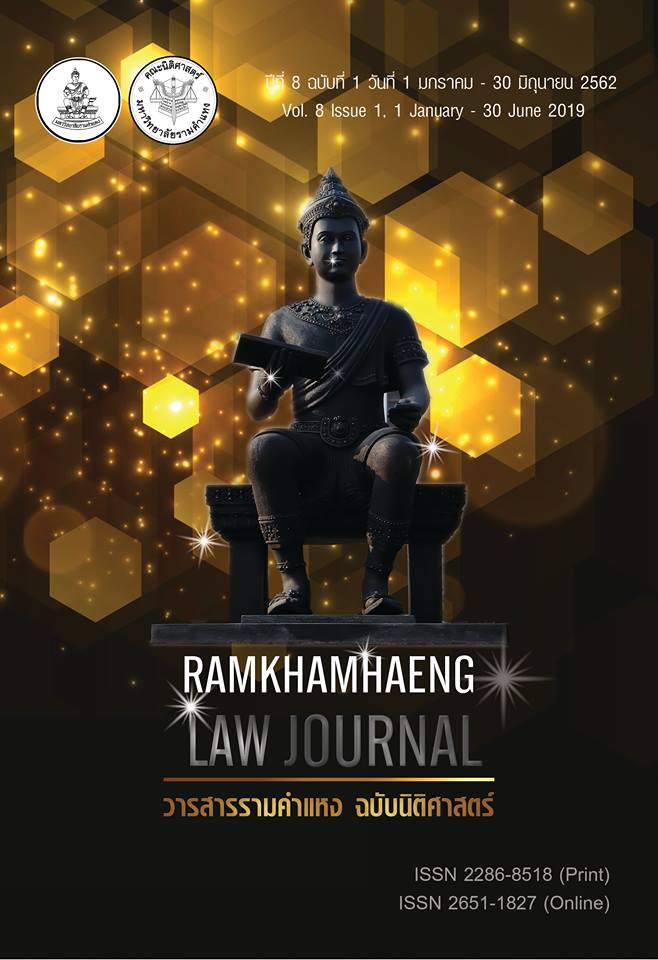ปัญหาการค้ามนุษย์กับกระบวนการยุติธรรมของไทย
Main Article Content
Abstract
The issue of human trafficking is the foremost human rights issue of our time. There is more to it than simply enforcing human rights. It is also important to strengthen criminal justice systems and use them to prosecute traffickers and rehabilitate survivors.
Human trafficking is a crime. It is a monstrous crime. Addressing this issue requires well-drafted criminal laws and functioning criminal justice systems. Not only do we need policies that help us to pursue traffickers, we also need prosecutors who are well trained, judges who are sensitive to survivors, and police officers who can collect the proper evidence.
This research has the objective of finding not only the strengthto utilize criminal justice systems, but also law enforcement officers with the ability to prosecute traffickers and rehabilitate victims.
This research found that human trafficing still presents many problems to the functioning of the Thai Criminal Justise system. They are as of follows:
The problems of police in identifying victims of human trafficking.
The problems of public prosecutorsin coordinating with police as the investigation continues in order to decide if they have enough evidence to prosecute the accused.
The problem of the interpretation of section 14 of the Procedures for Human Trafficking Cases Act, B.E. 2559 (2016), which provides that, “… The Court shall, upon its judgement requiring the accused to make compensation to the injured person, have the competence to order the accused to pay punitive damages in addition thereto as it deems appropriate…”
And finally, The problem of the application of section 21 of the Procedures for Human Trafficking Cases Act, B.E. 2559 (2016), which provides that, “In proceeding with a human trafficking case, if the alleged offender orthe accused has escaped during the proceedings or during trial by the Court, the period of time during which the escape of the alleged offender or the accused is in progress shall not be included in the computation of the period of prescription.
“In cases where a final judgment has been rendered for the punishment of the accused, if the accused has escaped during the sentencing and the final judgment, the provisions of section 98 of the Penal Code shall not apply.”

